#historian: michael jones
Explore tagged Tumblr posts
Text
In York’s case we do have another account of his death, and one written within a generation of Agincourt. Here, detail on the duke’s death is provided by the London chronicle Cleopatra CIV, which likely drew on returning soldiers’ accounts of the battle – and it offers strong contrast to Leland’s account. For the London chronicler chose to single out those who had displayed particular valour at Agincourt. Amidst this roll-call of honour, it was stated: The Duke of York was also lost, For his king, no foot would he flee Til his bascinet to his brain was bent. In other words, York refused to move more than a foot from his standard, holding the line and trading blows with the enemy until his own helmet [bascinet] was smashed into his skull. It is a vivid and moving sequence of events, and in this version, it is a death derived from extraordinary courage rather than corpulence.
Michael Jones, "How did Edward duke of York die at Agincourt?"
#generally warning for some fatphobia in the link#it's very 'the tudor chroniclers said york was fat and that contributed to his death... scarcely believable york was given the command when#he was so fat he could barely fight' which i don't think the source does say#imho it's important to acknowledge that it's a tudor era story that he was so fat that he basically suffocated in his armour#or drowned in the mud#but we don't need to go 'and therefore he was thin and fit'.#we know that the story is non-contemporary and probably coloured by the wars of the roses and the tudor bias against york#imo jones is correct that henry v would not have entrusted the vanguard to someone who couldn't fight#and i doubt that york would have come on a military campaign if he found fighting physically impossible or difficult#but that doesn't mean we know how much he weighed or didn't weigh#like... there are a lot of examples of fat people being able to fight or be physically active#edward 2nd duke of york#the battle of agincourt#historian: michael jones#deaths
6 notes
·
View notes
Note
slightly different from the book rec asks but you mentioned Jamie loftus so… any non-fiction podcast recs?
wow the great news is that I am pretty much constantly listening to a nonfiction podcast of one kind or another so this is huge for me. here are some of my faves!
Betwixt the Sheets: The History of Sex, Scandal, and Society - joined by a rotating cast of guest experts, sex historian Kate Lister goes on a romp through history to learn all about the sexual norms and revolutions of yesteryear.
Black People Love Paramore - in episodes that follow the formate of "Black People Love X," host Sequoia Holmes interviews her guests about their passions for pop cultural niches where Black people are often underrepresented, overlooked, or excluded altogether. heavy focus on music, as the title suggests, but topics also include Tony Hawk, pet ownership, and a memorable episode about being a slut featuring Ify Nwadiwe.
Maintenance Phase - truly like the #1 pod I get hype for when new episodes go up. hosted by fat activist Aubrey Gordon and methodology queen Michael Hobbes, focused on investigating and debunking various health and wellness fads as well as fatphobic misconceptions.
Oh No, Ross and Carrie - ONRAC just ended after thirteen and a half years of investigating all kinds of claims about wellness, spirituality, and the paranormal, ranging from self-proclaimed faith healers to exorcists to alien sightings to pet psychics to the creationist Ark-themed theme park in Kentucky. they have a HUGE backlog, great for browsing.
The Sporkful - a short and sweet podcast hosted by pasta enthusiast Dan Pashman, with each episode focusing on a different question, trend, or event from the world of food. despite being a pretty lighthearted show Pashman is admirably unafraid to tackle the less savory side of food culture; I first became aware of the podcast when he scored a searing interview with Sohla El-Wahlly after the revelation of massive workplace discrimination at YouTube's former darling, BA Test Kitchen.
The Stacks - the only book podcast I can currently tolerate. host Traci Thomas chats with authors about their new fiction and nonfiction releases and hosts a monthly book club. very chill listening, but dangerous for your to-read list.
There Are No Girls on the Internet - host Bridget Todd dives deep into tech trends, online outrages, and misinformation moments across the web. for my money, TANGOTI's coverage of the fatalities at Travis Scott's 2021 Astroworld event and the ensuing satanic panic conspiracy theories were some of the absolute best reporting around the event. currently on hiatus, so you have plenty of time to raid the archives!
Vibe Check - poet Saeed Jones and journalists Zach Stafford and Sam Sanders discuss pop culture and politics, answer listener requests for advice, and generally queen out together. you want nuance? the girlies have Nuance. genuinely one of the warmest and kindest podcasts in my rotation.
158 notes
·
View notes
Text
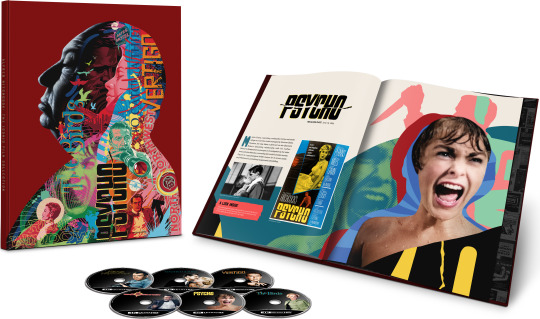
Alfred Hitchcock: The Iconic Film Collection will be released on November 26 via Universal. The 4K Ultra HD + Digital set collects six of the Master of Suspense's classic thrillers: Rear Window, To Catch a Thief, Vertigo, North By Northwest, Psycho, and The Birds.
Limited to 5,150, the six-disc collection is housed in premium book-style packaging featuring artwork by Tristan Eaton along with photos, bios, and trivia.
The uncut version of Psycho is included. Special features are detailed below.
1954's Rear Window is written by John Michael Hayes (To Catch a Thief), based on Cornell Woolrich’s 1942 short story "It Had to Be Murder." James Stewart, Grace Kelly, Wendell Corey, Thelma Ritter, and Raymond Burr star.
Rear Window special features:
Audio commentary by Hitchcock’s Rear Window: The Well-Made Film author John Fawell
Rear Window Ethics - 2000 documentary
Conversation with Screenwriter John Michael Hayes
Pure Cinema: Through the Eyes of The Master
Breaking Barriers: The Sound of Hitchcock
Masters of Cinema
Hitchcock/Truffaut - Audio recording from filmmaker François Truffaut’s in-depth interview with director Alfred Hitchcock about Rear Window
Production photo gallery
Theatrical trailer
Re-release trailer narrated by James Stewart
A wheelchair-bound photographer spies on his neighbors from his apartment window and becomes convinced one of them has committed murder.
1955's To Catch a Thief is written by John Michael Hayes (Rear Window), based on David Dodge’s 1952 novel of the same name. Cary Grant, Grace Kelly, Jessie Royce Landis, and John Williams star.
To Catch a Thief special features:
Audio commentary by Hitchcock historian Dr. Drew Casper
Filmmaker Focus: Leonard Maltin on To Catch a Thief
Behind the Gates: Cary Grant and Grace Kelly
A retired jewel thief sets out to prove his innocence after being suspected of returning to his former occupation.
1958's Vertigo is written by Alec Coppel (No Highway in the Sky) and Samuel A. Taylor (Sabrina), based on Boileau-Narcejac’s 1954 novel The Living and the Dead. James Stewart, Kim Novak, Barbara Bel Geddes, Tom Helmore, and Henry Jones star.
Vertigo special features:
Audio commentary by filmmaker William Friedkin (The Exorcist)
Obsessed with Vertigo: New Life for Hitchcock’s Masterpiece
Partners In Crime: Hitchcock’s Collaborators
Saul Bass: Title Champ
Edith Head: Dressing the Master’s Movies
Bernard Herrmann: Hitchcock’s Maestro
Alma: The Master’s Muse
Foreign censorship ending
100 Years of Universal: The Lew Wasserman Era
Hitchcock/Truffaut - Audio recording from filmmaker François Truffaut’s in-depth interview with director Alfred Hitchcock about Vertigo
Theatrical trailer
Restoration theatrical trailer
A former police detective juggles wrestling with his personal demons and becoming obsessed with a hauntingly beautiful woman.
1959's North by Northwest is written by Ernest Lehman (The Sound of Music, West Side Story). Cary Grant, Eva Marie Saint, James Mason, and Jessie Royce Landis star.
North by Northwest special features:
Audio commentary by writer Ernest Lehman
North by Northwest: Cinematography, Score, and the Art of the Edit
Destination Hitchcock: The Making of North by Northwest
The Master’s Touch: Hitchcock’s Signature Style
North by Northwest: One for the Ages
A Guided Tour with Alfred Hitchcock
A New York City advertising executive goes on the run after being mistaken for a government agent by a group of foreign spies, and falls for a woman whose loyalties he begins to doubt.
1960's Psycho is written by Joseph Stefano (The Outer Limits), based on Robert Bloch’s 1959 novel of the same name. Anthony Perkins, Vera Miles, John Gavin, Martin Balsam, John McIntire, and Janet Leigh star.
Psycho special features:
Original uncut and standard re-releases version of the film
The Making of Psycho
The Making of Psycho audio commentary with Alfred Hitchcock and The Making of Psycho author Stephen Rebello
Psycho Sound
In The Master’s Shadow: Hitchcock’s Legacy
Newsreel Footage: The Release of Psycho
The Shower Scene: With and Without Music
The Shower Sequence: Storyboards by Saul Bass
The Psycho Archives
Hitchcock/Truffaut - Audio recording from filmmaker François Truffaut’s in-depth interview with director Alfred Hitchcock about Psycho
Posters and ad gallery
Lobby card gallery
Behind-the-scenes photo gallery
Production photo gallery
Psycho theatrical trailers
Psycho re-release trailer
A secretary on the run for embezzlement takes refuge at a secluded motel owned by a repressed man and his overbearing mother.
1963's The Birds is written by Evan Hunter (High and Low), based on Daphne du Maurier’s 1952 short story of the same name. Tippi Hedren, Rod Taylor, Jessica Tandy, Suzanne Pleshette, and Veronica Cartwright star.
The Birds special features:
The Birds: Hitchcock’s Monster Movie
All About The Birds
Original ending
Deleted scene
Tippi Hedren’s screen test
The Birds is coming (Universal International Newsreel)
Suspense Story: National Press Club hears Hitchcock (Universal International Newsreel)
100 Years of Universal: Restoring the Classics
100 Years of Universal: The Lot
Hitchcock/Truffaut - Audio recording from filmmaker François Truffaut’s in-depth interview with director Alfred Hitchcock about Vertigo
Theatrical trailer
A wealthy San Francisco socialite pursues a potential boyfriend to a small Northern California town that slowly takes a turn for the bizarre when birds of all kinds suddenly begin to attack people.
Pre-order Alfred Hitchcock: The Iconic Film Collection.
#alfred hitchcock#Rear Window#Vertigo#North By Northwest#Psycho#The Birds#To Catch a Thief#dvd#gift#cary grant#james stewart#anthony perkins#tippi hedren#janet leigh#Tristan Eaton
19 notes
·
View notes
Text
Concept/Comic Artists Part 1:
Masterlist
BUY ME A COFFEE
Not to be confused with conceptual artists within Art History, to find out more click here. Before deciding that I wished to be an art historian, I very much wished to pursue some type of art making. And I was mostly inspired by the idea generating and development within Concept Art spheres.
Concept Art is mainly used for idea generating within a market, for films or video games, and is used in drawing out designs from a brief and prompt. Comic artists, well that one I believe is self-explanatory (and some comic recommendations). The reason I’m making this post is because I wish to pay homage to my roots and highlight some more contemporary artists rather than dead ones from my Art History lessons.
And a special thank you @willow-dino for helping me! I lost all my notes on this topic, but someone still had theirs.
Comic Artists and Comics
Adrian Alphona, 2003/2014; Runaways/Ms Mervel
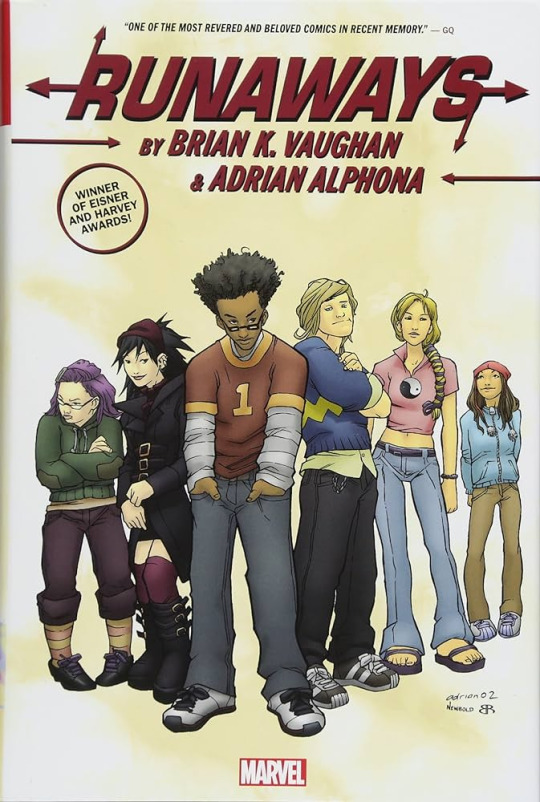
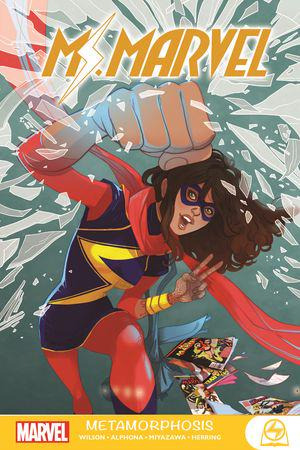
Hiromu Arakawa, 2001; Fullmetal Alchemist (FMA)
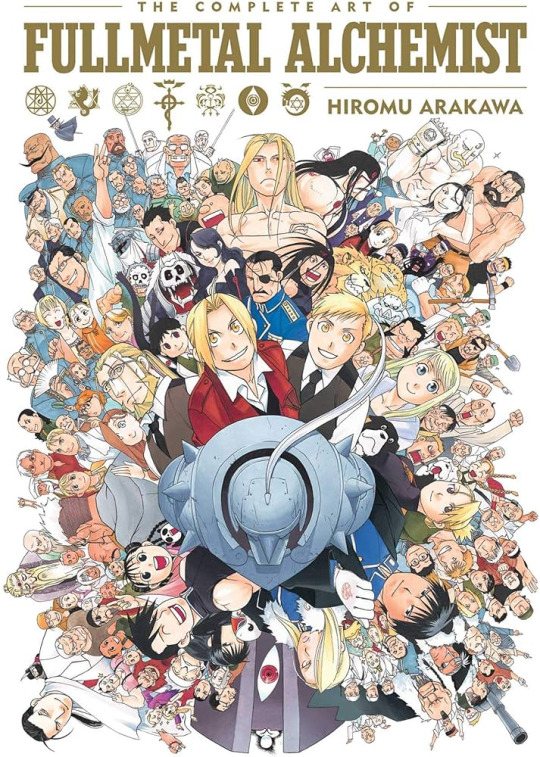
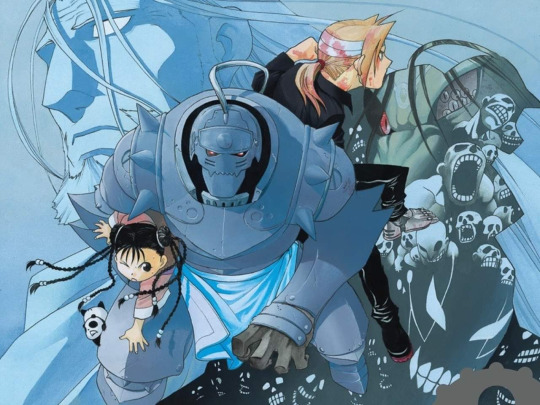
Chris Bachalo, 1993; The Children's Crusade

Mark Bagley, 2000; Ultimate Spiderman


Brian Bolland, 1988; The Killing Joke

Jean-Michel Charlier and Albert Uderzo, 1959; Le Adventures de Tanguy et Laverdure (French Air Force)
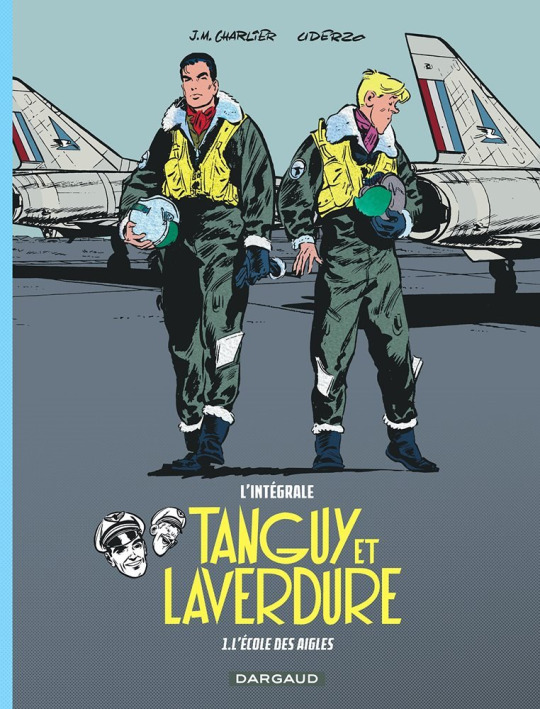
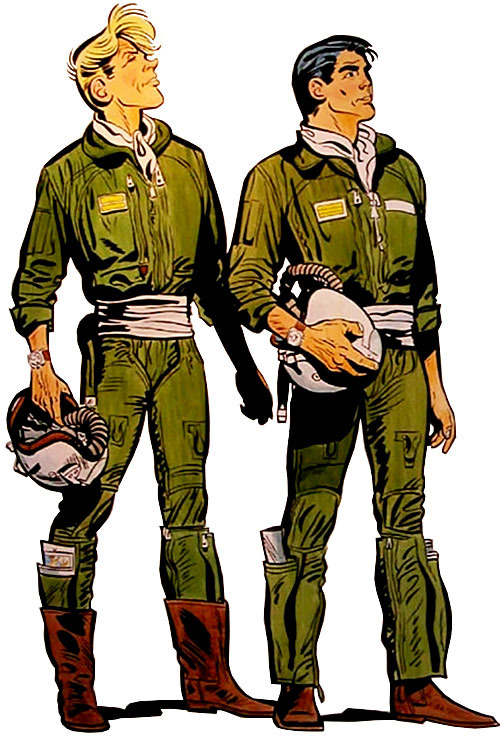
Mark Dringenburg, 1986; The Sandman #6
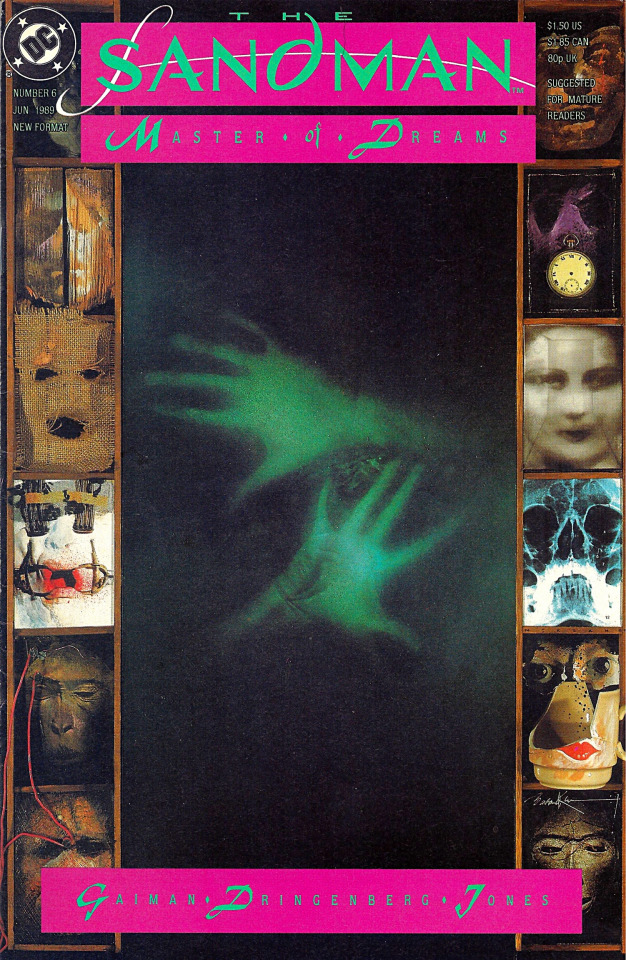

Mitch Gerads, 2015; The Sheriff of Babylon

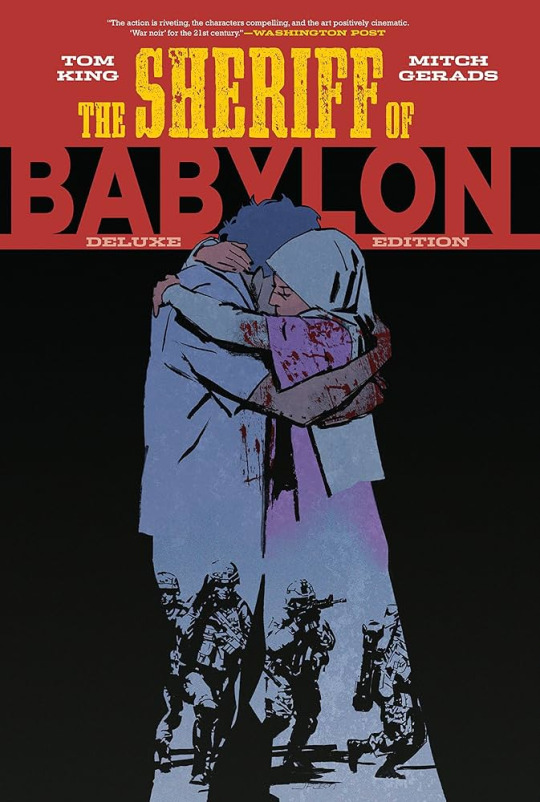
Dave Gibbson, 1986; Watchmen


Jean Giraud (Moebius), 1963; Blueberry

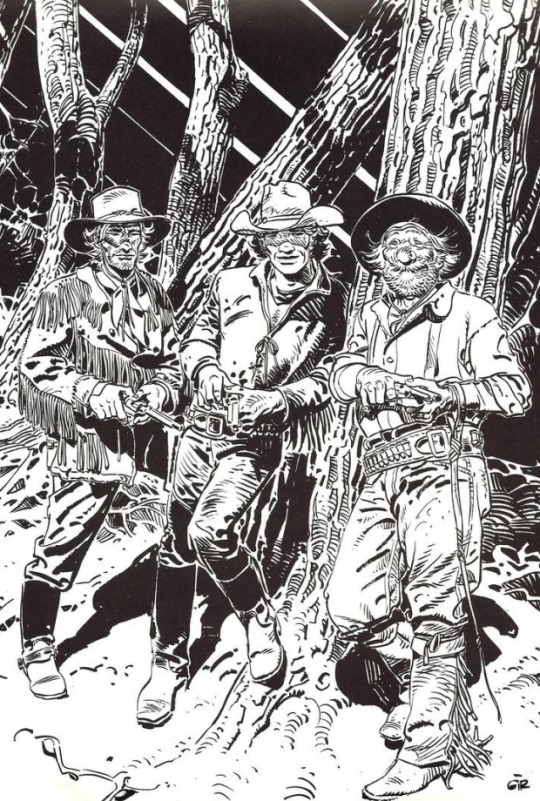
Jean Graton, 1957; Michael Vaillant

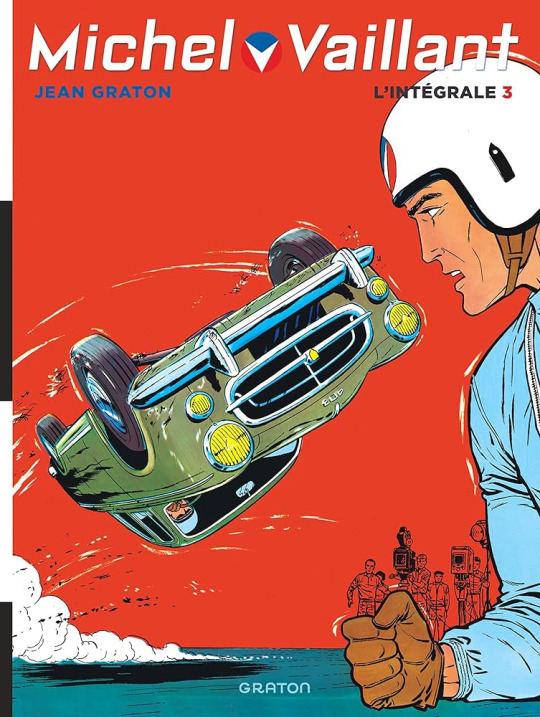
Herge, 1929 – 86; The Adventures of TinTin

Kelly Jones, 1991/2000/2021; The Sandman #17/Sleepy Hollow/Batman: Black and White #3


Taiyo Matsumoto, 2010 – 15; Sunny

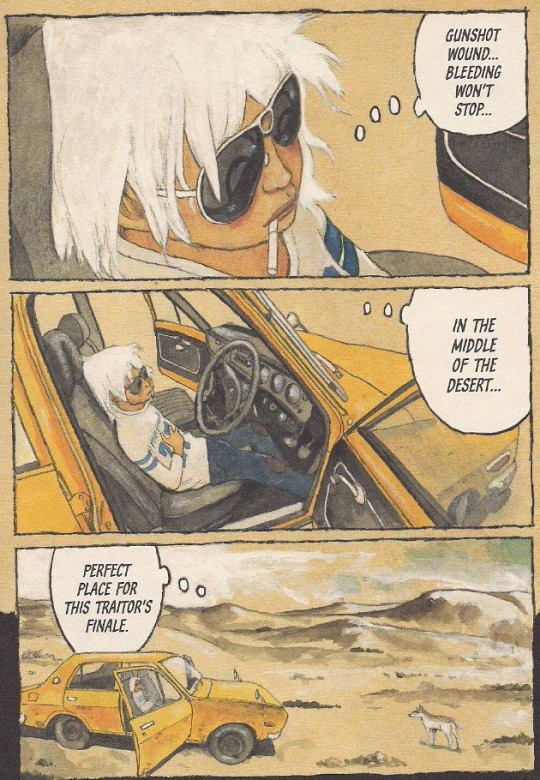
Dave McKean, 1989/1992/2016; Arkham Asylum/Signal to Noise/Black Dog: The Dream of Paul Nash
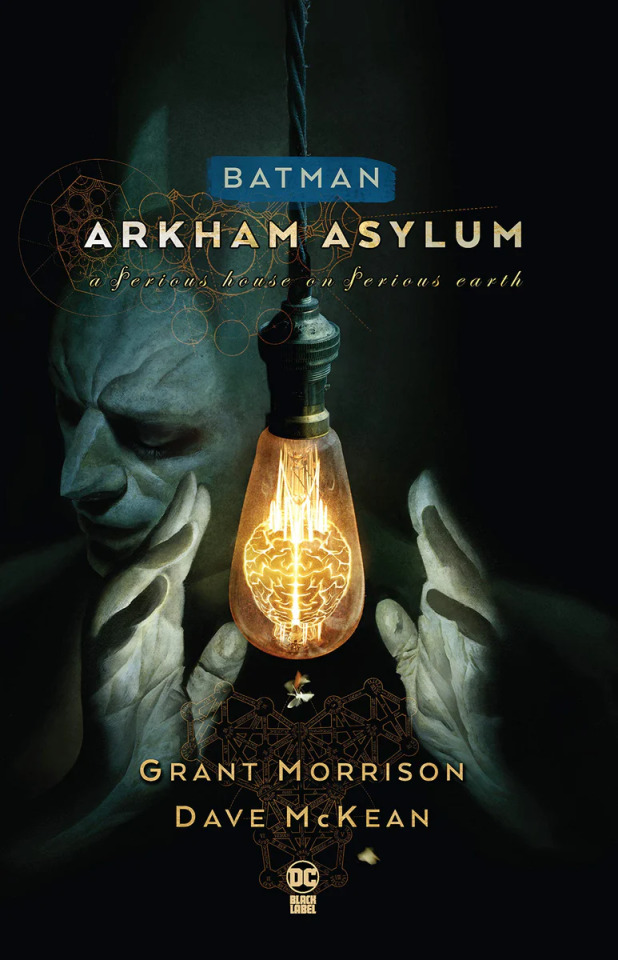

Carlos Meglia, 1991; Cybersix
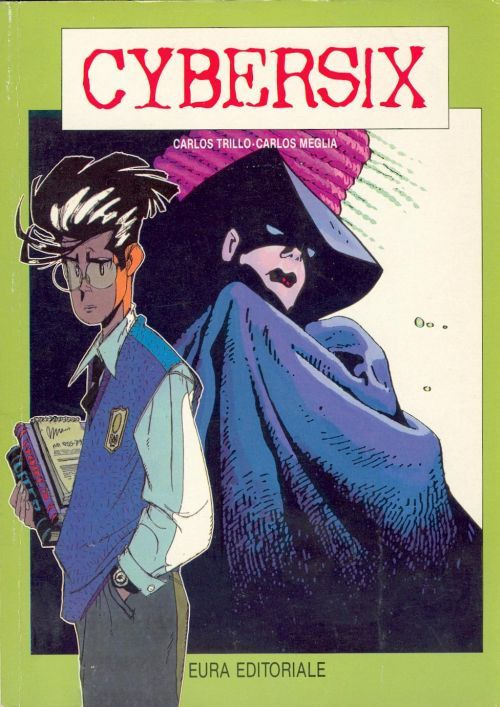
Go to Part 2 for more artists...
#art gallery#artwork#writing#art tag#art hitory#art#essay#paintings#art exhibition#art show#comic art#comics#comic books#web comic#comic strip#artists#digital art#watercolor#drawings#illustration#concept art#character concept#character#sciencefiction#scifi#fantasy#sword#spiderman#manga#anime and manga
21 notes
·
View notes
Text

No offense to Slate and all the ink they spill here giving the history of pop music from the late 70s to early 80s, but..."City Pop."
Especially Espresso. It sounds like Japanese city pop.
Just use city pop.
...Also the actual stuff from the early 80s they think this sounds like, but only sort of does, is "synth-funk," because that's what it was. The early Michael Jackson stuff. What Quincy Jones was doing around the time I was born. Funk, using new prosumer synth instruments. I don't know what the problem is, here. Then it turned into the Minneapolis Sound by Jam & Lewis, then New Jack. I guess the names got lost because it was really successful and just became the "pop" of the era. Compare it to New Wave, which was almost literally the blue-eyed (read, white English) replication of this. As happens.
And for you broccoli-heads out there, you know this early 80s sound mostly as the hooks people filter and chop up to make vaporwave. That sort of thing.
I didn't know we weren't supposed to know this. What are you music historians doing over there?
Anyway, Espresso is a cool song. City pop.
4 notes
·
View notes
Text
Lady Whistledown and the Diamonds of the Lost Water
read it on AO3 at https://archiveofourown.org/works/57351871 by byebyelullabye Dr. Penelope Bridgerton has had her fair share of adventure. And she's so done with it. The stolen treasure, the double identity, and the dashing archaeologist she continues to hold a torch for? It's everything she's run from three years ago and she's not going back now. Especially not when she can just find the treasure from her hideaway in Derry… At least not until a blast from the past walks through her door… AKA The Indiana Jones x The Mummy Bridgerton AU THAT HAS BEEN STEWING IN MY HEAD FOREVER Words: 1613, Chapters: 1/15, Language: English Fandoms: Bridgerton (TV), Bridgerton Series - Julia Quinn, Derry Girls (TV) Rating: General Audiences Warnings: No Archive Warnings Apply Categories: F/F, F/M, Gen Characters: Colin Bridgerton, Penelope Featherington, Eloise Bridgerton, Phillip Crane, Anthony Bridgerton, Kate Sheffield | Kate Sharma, Sophie Beckett, Benedict Bridgerton, Edwina Sheffield | Edwina Sharma, Genevieve Delacroix, Violet Bridgerton Relationships: Colin Bridgerton/Penelope Featherington, Eloise Bridgerton/Phillip Crane, Anthony Bridgerton/Kate Sheffield | Kate Sharma, Sophie Beckett/Benedict Bridgerton Additional Tags: Inspired by Indiana Jones, Inspired By The Mummy (Movies 1999 - 2008), Friends to Lovers, Idiots in Love, Mutual Pining, Colleagues to Lovers, Fake Character Death, Angst, the angst is the from the faking of death, they're not really dead you just need to think that for the pining to be achieved, Sad Colin Bridgerton, Colin Bridgerton Being an Idiot, Colin Bridgerton/Penelope Featherington-centric, Protective Colin Bridgerton, Colin "My Wife" Bridgerton, colin is an archaeologist, penelope is a historian turned librarian, she still does lady whistledown but in a different flavor, phillip is a woman because i say so, lesbian eloise bridgerton is what the people deserve, kate and sophie and gen are penelope's accomplices, they're lady whistledown's angels, Jealous Colin Bridgerton, if i could make him yandere i would but the world is not ready for that i fear, No beta we die like Edmund, Alternate Universe - Modern Setting, theres no specific time bc haha no, the vibe and setting is 90s but the dialogue is 2020s, there are derry girls references and some characters, BAMF Penelope Featherington, Confident Penelope Featherington, also Penelope is a gifted child because i say so, polin gives off brendan fraser and rachel weisz from the mummy enegry, Polin, michael is colin's bff, colin needs more friends so he can distinguish his feelings for pen, this is fic is very penelope-centric read it on AO3 at https://archiveofourown.org/works/57351871
4 notes
·
View notes
Text
Birthdays 9.22
Beer Birthdays
Lord Chesterfield; English statesman (1694)
Alfred Vinzenz Werthmueller (1835)
George Kennth Hotson Younger (1931)
Carlos Sanchez (1958)
Dave McLean (1969)
Five Favorite Birthdays
Bilbo Baggins; Hobbit character
Frodo Baggins; Lord of the Rings character
Michael Faraday; English scientist (1791)
Joan Jett; rock singer, guitarist (1958)
Tatiana Maslany; Canadian actor (1985)
Famous Birthdays
King Sunny Ade; Nigerian reggae singer (1946)
Scott Baio; actor (1960)
Eric Baker; English activist, co-founded Amnesty Int’l (1920)
Toni Basil; pop singer (1943)
Elizabeth Bear; author and poet (1971)
Shari Belafonte; actor (1954)
Maurice Blanchot; French philosopher (1907)
Andrea Bocelli; Italian singer-songwriter (1958)
Debby Boone; pop singer (1956)
Barthold Heinrich Brockes; German poet (1680)
Harold Carmichael; Philadelphia Eagles WR (1949)
Nick Cave; rock musician (1957)
Neil Cavuto; journalist and author (1958)
Ellen Church; 1st airline stewardess (1904)
Dave Coverdale; rock singer (1951)
Quintin Craufurd; Scottish author (1743)
Babette Deutsch; poet (1895)
Ashley Eckstein; actress (1981)
Will Elder; illustrator (1921)
György Faludy; Hungarian poet & author (1910)
Tom Felton; English actor (1987)
Grigory Frid; Russian pianist & composer (1915)
Philipp Nicodemus Frischlin; German mathematician, astronomer & poet (1547)
Theodore Hook; English composer (1788)
John Houseman; actor (1902)
Bonnie Hunt; actor (1964)
Ruth Jones; Welsh actress (1966)
Anna Karina; actor (1940)
Brian Keene; novelist (1967)
Charles Keeping; English author & illustrator (1924)
Allan "Rocky" Lane; voice of "Mr. Ed" (1909)
Tommy Lasorda; Los Angeles Dodgers coach (1927)
Paul Le Mat; actor (1945)
Katie Lowes; actress (1982)
Matthäus Merian; Swiss-German engraver & cartographer (1593)
Ian Mortimer; English historian & novelist (1967)
Paul Muni; actor (1895)
Catherine Oxenburg; actor (1961)
Peter Simon Pallas; German zoologist & botanist (1741)
Rupert Penry-Jones; English actor (1970)
Sue Perkins; English comedian, actress (1969)
Saul Perlmutter; astrophysicist, astronomer (1959)
Rosamunde Pilcher; English author (1924)
Billie Piper; English singer, actor (1982)
Arthur Pryor; trombonist, composer (1870)
Paolo Ruffini; Italian mathematician & philosopher (1765)
Martha Scott; actor (1914)
Elizabeth Simcoe; English-Canadian painter & author (1762)
Bill Smith; clarinet player & composer (1926)
Theodore Clement Steele; artist (1847)
Michael Torke; composer (1961)
Ken Vandermark; saxophonist & composer (1964)
Charles Waterhouse; painter (1924)
Fay Weldon; English writer (1931)
Billy West; actor (1892)
Ray Wetzel; trumpet player & composer (1924)
1 note
·
View note
Text
In Memoriam: Honouring the LGBTQIA+ lives lost in 2024
New Post has been published on https://qnews.com.au/in-memoriam-honouring-the-lgbtqia-lives-lost-in-2024/
In Memoriam: Honouring the LGBTQIA+ lives lost in 2024

This year, the LGBTQIA+ community bid farewell to remarkable individuals who left an indelible mark on the world. From trailblazing activists, beloved community members, and entertainers, each of these individuals will be greatly missed.
Bill Whittaker AM
A founding CEO of ACON, Bill Whittaker’s visionary work laid the foundation for HIV advocacy in Australia.
Bobby Goldsmith Foundation Ambassador
A cherished community member who tirelessly supported others through the foundation.
Cecilia Gentili (1972–2024)
An Indigenous artist who redefined the art world with her bold works passed away in Melbourne.
Destiny Rogers (1959–2024)
The QNews writer, historian and entertainer passed away at 64 after a battle with lung cancer.
Glenda Jackson
Glenda first donned full drag in the early 1970s in the “steel city” of Newcastle, inspired by the iconic Les Girls she saw in Sydney.
Indigenous artist who coined term ‘Blak’
A trailblazing Indigenous photographer and multimedia artist, credited with coining the term “Blak”, died in Melbourne.
Ignatius Jones
Australian music icon Ignatius Jones passed after a short illness.
Ian Gelder (1949–2024)
Best known as Kevan Lannister in Game of Thrones, Ian Gelder’s career spanned stage and screen.
Jack Colwell (1989–2024)
The out singer-songwriter self-funded his music as an independent artist and worked for years as a musical director, composer, arranger, teacher and choirmaster.
Jesse Baird and Luke Davies
Sydney couple Jesse Baird and Luke Davies were allegedly murdered in Baird’s Paddington home in February 2024.
John Spellman (1947–2024)
A community icon in Darwin, John Spellman was a beloved figure who nurtured and protected the local community.
Lance Leopard and Carmel
A iconic figure in Brisbane’s LGBTQIA+ community, Lance Leopard and his mother Carmel tragically passed away in a house fire.
Michael Heslin
The actor, best known for his role in Special Opps: Lioness died at just 30.
Nancy Valverde (1931–2024)
Los Angeles butch lesbian trailblazer Nancy Valverde passed at 92.
Neil McLucas
Sportsman Hotel legend and cherished figure in Brisbane’s LGBTQIA+ community, Neil McLucas, passed away this year.
Phil Carswell
Veteran AIDS activist Phil Carswell died at aged 70, leaving behind a powerful legacy from his decades of advocacy.
Richard Simmons (1948–2024)
Los Angeles police confirmed the death of eccentric fitness guru Richard Simmons, one day after his 76th birthday.
Robert Fawkes
Robert Fawkes was a 78er and a champion of both the LGBTQIA+ and sex work communities.
Sphen the Penguin
One half of Sydney’s iconic gay penguin couple, Sphen, captured hearts worldwide.
Steve Ostrow
Ostrow founded the Mature Aged Gays project in 1991 as a safe place where older gay men could meet and socialise
Toby Simkin
From Beat Megaclub to Broadway, producer Toby Simkin was a leader in the creative arts.
For the latest LGBTIQA+ Sister Girl and Brother Boy news, entertainment, community stories in Australia, visit qnews.com.au. Check out our latest magazines or find us on Facebook, Twitter, Instagram and YouTube.
0 notes
Text
The Lost King (2022) Movie Review
The Lost King – ABC Film Challenge – Set in England – L – The Lost King – Movie Review Director: Stephen Frears Writer: Steven Coogan, Jeff Pope (Screenplay) Writer: Michael Jones, Philippa Langley (Book) Cast Sally Hawkins (The Shape of Water) Steve Coogan (Philomena) Harry Lloyd (The Theory of Everything) Mark Addy (Game of Thrones) Adam Robb Plot: An amateur historian defies the…
0 notes
Text
youtube
Mark Dowie - First Nations' Independence
Nov 29, 2018
Join TNS Host Michael Lerner in conversation with Investigative Historian Mark Dowie about the struggle shared by thousands of native peoples around the world for aboriginal title and self-determination. Mark’s recently published book is The Haida Gwaii Lesson: A Strategic Playbook for Indigenous Sovereignty.
Mark Dowie is an investigative historian, a former publisher and editor of Mother Jones magazine and former editor-at-large of InterNation, a transnational feature syndicate based in Paris. His recent books include The Haida Gwaii Lesson: A Strategic Playbook for Indigenous Sovereignty, Conservation Refugees: The Hundred-Year Conflict Between Global Conservation and Native Peoples, and American Foundations: An Investigative History. During his forty year media career Mark has written, edited, or published more than 200 investigative magazine articles and has won 19 journalism awards including four National MagazineAwards. He is a founding director of the Center for Investigative Reporting and taught science, environmental reporting, and foreign correspondence at the U.C. Berkeley Graduate School of Journalism, and was awarded a Doctor of Humane Letters by John F. Kennedy University.
He lives in the outskirts of Willow Point on Tomales Bay south of Inverness, California, with his wife, artist Wendy Schwartz, and their yellow lab, Gracie.
from NewSchoolCommonweal
0 notes
Text

Marriage is about sacrifice. Loving your spouse more than you love yourself. Compromise. Their heart is worth. Michael Wolf I love you. You are a true treasure😍 and the ultimate college education worth knowing & learning. Your heart is the adventure discovery quest that I love exploring. I love
Learning more about your heart more and more. Keys 🔐 insights and knowledge deeply of all that you are and who you are. I love being the historian of your heart. There is truly more to you than meets the eye👁. There are not any fairy tale, romance 💐 💗 books 📚 that are big enough to contains the rich 🤑 treasuries that are inside your heart. You are passionate about many things. An encyclopedia of many subjects. A plethora of beautiful moments all wrapped in one. Each chapter, every moment has beautifully and wrapped you up into the awe inspiring and breathtakingly moments of your life.
This year Jesus is healing ❤️🩹, restoring, and reviving your heart. Bringing who you are back to life. You are indeed a true warrior poet. An artisan 👨🎨 in the realms of the spirit. You create divine masterpieces from the Father’s heart. I am so honored to be your’s and I have a lifetime to get to know you even more. Just when I think I’ve fully fallen in love with you; each day I love you even more. It’s like awakening and waking up the true hidden treasure is who you are. It’s like Indiana Jones mysteries and adventures all wrapped in one. You are amazing my dear husband and beloved man of God. I am so eternally grateful to Jesus that I waited for you. You are so precious indeed beyond all compare. You are like waking up to Christmas 🎄 morning all over again. The very best and most beautiful of all sunrises and sunsets is who you are. The word I love you would never be enough to say how much I love you. I am ardently, head over heels, passionately, enmeshed, intricately, ravishingly, wowed, and in awe of you. My words could never convey just how deeply I am in love with you. Every day. Now. Throughout all of eternity I get to fall in love with you. You are my husband. My lover. My groom. My warrior poet. My knight. My best friend. The father of our children. I love you.
Love your bride.
Love your treasure.
Your gift.
Jessica
Jessica Wolf
I love you ❤️
0 notes
Text
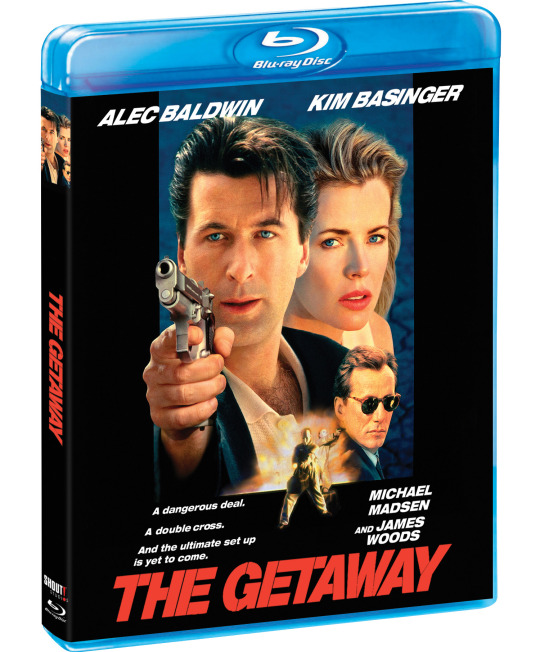
The Getaway has been released on Blu-ray exclusively from Shout Factory. Limited to 2,010, the 1994 action thriller is available for $29.98.
Roger Donaldson (The Bank Job, Species) directs from a script by Walter Hill (The Warriors) and Amy Holden Jones (Indecent Proposal), based on the 1958 novel by Jim Thompson. Alec Baldwin, Kim Basinger, Michael Madsen, Jennifer Tilly, Richard Farnsworth, James Woods, and Philip Seymour Hoffman star.
The Getaway is presented unrated in high definition. Special features are listed below.
Special features:
Audio commentary by film critic Travis Woods (new)
Interviews with composer Mark Isham and film historian C. Courtney Joyner (new)
Behind-the-scenes featurette
Interview with actor Alec Baldwin
Interview with actress Kim Basinger
Theatrical trailer
Escaping with the loot from a robbery, Doc and Carol McCoy (Alec Baldwin and Kim Basinger) find themselves on the run from both the law and the deadly hit squad of crime boss Jack Benyon (James Woods). When Doc discovers that Carol struck a deal with Benyon to buy his freedom, the boundaries of love, lust, and greed are put to the ultimate test.
#the getaway#alec baldwin#kim basinger#michael madsen#jennifer tilly#james woods#richard farnsworth#shout factory#dvd#gift#90s movies#90s action movies#roger donaldson#walter hill#philip seymour hoffman
13 notes
·
View notes
Text
Photography Research; Andy Warhol


Andy Warhol created portraits of people he admired—musicians Michael Jackson and Grace Jones, boxer Muhammad Ali—as well as wealthy socialites he met on the New York social circuit. By the mid-1960s, Warhol had collected a public following of artists, filmmakers, performers, writers, and art patrons seduced by his persona. Furthering his cultivated fame, he engaged with painting of self-portraits and in time, became famous for the iconic portraits of Marilyn Monroe or Elizabeth Taylor.
Carter Ratcliff, an art historian has argued that ‘as blank and anesthetised as his surfaces sometimes are, they hide depths of a traumatised self or a deep sense of the random and depersonalised tragedy of the modern world’ (Ratcliff in Shafrazi 2007).
Warhol understood the importance of the portrait in modern life, and in particular, as Shafrazi has asserted, the function of the photograph as the ‘supreme vehicle of fixity and change’ (Shafrazi 2007). The use of the artist's silkscreening process ‘perfectly mimics the isolated flickering image as it hits the screen, registers for a moment, and is gone. That is the poetry in Warhol’s work, his extraordinary sensitivity in freezing a lyrical instant of time’ (Shafrazi 2007).
Struggling with aging, his self portraits explored these insecurities. He especially liked to experiment with drag in his portraits including a lot of wigs.
1 note
·
View note
Text
Oh my favourite book (ironically enough hehe) - The Running Man by Michael Gerard Bauer. It's about a boy who has to paint his neighbours brother, a Vietnam war veteran, for his art project and the two (the war veteran and boy) form a bond with each other. The writing is lovely and it contains no romance in it.
Rabbit proof fence - A movie based on a true story of 3 Aboriginal girls attempting to go back home after being taken away by their mother. No romance, only around family (mainly between the sister and their journey in coming back home to their mother) It's sad but has a bittersweet ending.
Yolngu boy - Three boys rebond again after attempting to rescue their friend from jail and to go to Darwin. There is an implied romance but it's so rare and it's mostly around the boys friendship with each other. Great movie, heartbreaking one though with another bittersweet ending.
Heaven eyes by David Almond - Orphan kids running away to the great sea till they get washed away to an island with a strange girl. The book feels like your in a dream and contains no romance in it
So much to tell you by John Marsden - a book centring around a girl that had her face scarred by her abusive father and now has to attend an all girl's boarding school to finally 'speak' again. Little to do with romance, the main character is kinda aspec coded ngl (just me though) and the books happy ending is her meeting her father again.
Spirited away - Maybe it's just me but there's seems to be no romance in that movie either and just two characters who care about each other (if you see 'love' as non romantic per say) Amazing story, animation, creative. Go watch it.
Don't fall in love by Drako Jones - classic aromantic song what could I say
If your also an aromantic historian, maybe the 'thirteen days' movie by Roger Donaldson. There's no romance in it either, just a docu-drama around the Cuban missile crisis.
Hope I was able to bring in my input
The thing about finding out you’re aromantic is that very often there is a grieving process.
We mourn the lives we feel we were supposed to have. Society has told us that we were supposed to have sweeping romances and sprint through airports to stop people’s planes etc., and that is pretty much the only happy ending they show us. How many movies end with two people getting together? How many end with a marriage or a love confession or a kiss? And then after that, happily ever after is implied.
Which is why my biggest tip for combating said aromantic grief is to consume as much content where this isn’t the case as possible.
I’m not saying never read romance again, but being able to visualize a future with alternative happy endings is infinitely helpful.
So here’s all the media I go to when I need to feel non-romantic aro feels:
- the Adventures of Tintin. About a young reporter who solves mysteries, found family who all end up living together. Steven Spielberg movie is good, American cartoon is good, and the comics are amazing, just avoid Tintin in the Congo. The author was Belgian.
- all the Redwall books. There are 22 of them. There is also a three season cartoon. There are rodents. They have swords. The food. THE FOOD. also you will be a communist by the end. In a good way.
- little women 2019 because her happy ending isn’t that she marries the professor, her happy ending is that she gets her book. And the aro vibes are strong as hell
- all of the aro fanfiction. Just all of it.
- these specific songs:
Now tell me yours because I need more
17 notes
·
View notes
Text
Birthdays 1.10
Beer Birthdays
William Copeland (1834)
Nancy Johnson (1961)
Todd Alstrom (1969)
Eric Salazar (1973)
Frances Michelle (1987)
Five Favorite Birthdays
Pat Benatar; rock singer (1953)
Jim Croce; pop singer (1943)
Donald Fagen; musician (1948)
Bernard Lee; actor, "M" (1908)
Max Roach; jazz musician, drummer (1925)
Famous Birthdays
John Acton; English historian (1834)
Stephen Ambrose; historian, writer (1936)
Earl Bakken; inventor (1924)
Sune Bergström; Swedish biochemist (1916)
Katherine Blodgett; inventor, scientist (1898)
Ray Bolger; actor (1904)
Francis X. Bushman; actor, director, and screenwriter (1883)
Jared Carter; poet and author (1939)
Shawn Colvin; singer (1956)
Eldzier Cortor; painter (1916)
Roy E. Disney; businessman, Disney CEO (1930)
Dean Dixon; American-Swiss conductor (1915)
Aynsley Dunbar; English drummer and songwriter (1946)
George Foreman; boxer (1939)
Cynthia Freeman; author (1915)
Al Goldstein; pornographer (1936)
Evan Handler; actor (1961)
Ronnie Hawkins; rockabilly singer (1935)
Paul Henried; actor (1908)
Barbara Hepworth; sculptor (1903)
Rosella Hightower; ballerina (1920)
Walter Hill; film director (1942)
David Horowitz; activist and author (1939)
Frank James; outlaw (1843)
Robinson Jeffers; poet, writer (1887)
Janet Jones; actor (1961)
Jeffrey Catherine Jones; comics and fantasy artist (1944)
Donald Knuth; mathematician, computer scientist (1938)
Philip Levine; poet (1928)
Martin Lichtenstein; German physician and explorer (1780)
Linda Lovelace; pornstar (1939)
Willie McCovey; San Francisco Giants 1B (1938)
J.P. McEvoy; writer (1897)
Sal Mineo; actor (1939)
Cyril Neville; musician (1948)
Milton Parker; businessman, co-founder of the Carnegie Deli (1919)
Johnnie Ray; singer-songwriter and pianist (1927)
Charles G. D. Roberts; Canadian poet and author (1860)
John Root; architect (1850)
Michael Schenker; German guitarist and songwriter (1955)
Tony Soper; English ornithologist (1929)
Rod Stewart; pop singer (1945)
Scott Thurston; American guitarist and songwriter (1952)
Bill Toomey; Olympic gold medalist for Decathlon (1939)
Robert Woodrow Wilson; physicist and astronomer (1936)
Johannes Zick; German painter (1702)
Johann Rudolf Zumsteeg; German composer (1760)
1 note
·
View note
Note
do you have any good book recommendations for someone studying Margaret Beaufort?
Hi! The ultimate Margaret Beaufort biography is Jones & Underwood's The King’s mother: Lady Margaret Beaufort, Countess of Richmond and Derby. I have read some other works by Jones on the Beaufort family but I haven't been able to read his (and Underwood's) bio because it's quite pricy and I can't find it online anywhere (and there's no e-book edition sadly).
There are a couple of pop history biographies that are more accessible. Tallis' biography (2019) is alright overall, but the extent of her use of secondary sources (and secondary sources such as Alison Weir) was disappointing and annoying. Norton (2010) used a wider range of primary sources but I couldn't agree with many of her conclusions/arguments after looking at her evidence (eg: she says Margaret and Elizabeth of York were rivals). I think I've enjoyed Tallis' biography a bit more. Lauren Johnson (who's recently written a biography of Henry VI) is writing a Margaret Beaufort biography at the moment but we'll have to wait and see.
What I would really like to get is a study on Margaret's role as the king's mother (kind of like what Laynesmith did in The Last Medieval Queens and Warnicke did in Elizabeth of York and Her Six Daughters-in-Law, both studies focused on queenship). I would like to read about her activities as a married femme sole and vowess: her transactions of land, her pursuit of feudal rights, her religious and educational patronage, her translations and printing commissions, her role as arbiter of the king's justice in the Midlands, etc.
Biographies end up too vague about those topics because they inevitably talk more about personal life (and Margaret had plenty of drama in her life). I would love to get a focused study, maybe even one that also analysed Cecily Neville's role as the king's mother. So much of Margaret's role and participation mirrored Cecily's yet there's this misconception that Margaret was too indulged by her son. It would be nice to actually compare the two king's mothers (Laynesmith, I'm begging you this would be right in your lane).
To go back to your question, I also recommend the following articles:
“Margaret R”: Lady Margaret Beaufort’s Self-fashioning and Female Ambition by Sally Fisher in Virtuous or Villainess? The Image of the Royal Mother from the Early Medieval to the Early Modern Era
Margaret Tudor, Countess of Richmond, and Elizabeth of York: Dynastic Competitors or Allies? by Retha Wanicke in Unexpected Heirs in Early Modern Europe
Translation, Self-Representation, and Statecraft: Lady Margaret Beaufort and Caxton's Blanchardyn and Eglantine (1489) by Anne Bartlett
Lady Margaret Beaufort and the Wives of Henry VIII by Valerie Schutte in Mary I and the Art of Book Dedications
Wishing you a nice reading! 🌹x
#ask#anon#margaret beaufort#historian: michael jones#historian: nicola tallis#historian: elizabeth norton#historian: retha warnicke#historian: valerie schutte#historian: sally fisher#historian: anne bartlett
25 notes
·
View notes